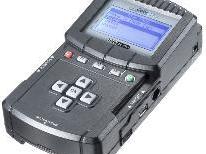Privacy concerns over police snooping tech
'Proper safeguards' need to be put in place says Liberty

Civil rights group Liberty has criticised police use of data-mining technology that allows them to gain quick access to pictures and other data from seized mobile phones.
The majority of UK police forces are now using UFED data extraction devices to assist them in getting pictures and data from seized mobile phones, helping to by-pass password protection systems.
"PACE was originally designed for traditional searches of clothes and handbags," said Isabella Sankey, Liberty's Policy Director. "These search powers are now being used to access intimate information stored on blackberries and mobile phones."
The news follows reports in The Guardian this week that "the hand-held machines can override password protection systems and are increasingly being used by hi-tech crime units and intelligence agencies."
Anti-terror argument
Civil rights groups are concerned about the impact of such new technologies, whereas Police claim that the tech helps identify drug dealers and also assists in anti-terrorist activity.
"We have used the devices for investigating everything - rape, robbery, child abuse and drug dealing," said Detective Inspector Michael Crampton of West Yorkshire Police's hi-tech crime unit.
Get daily insight, inspiration and deals in your inbox
Sign up for breaking news, reviews, opinion, top tech deals, and more.
West Yorkshire police is using Cellebrite Universal Forensic Extraction Devices (UFEDs). Apparently 35 of the 43 police forces in England and Wales already have these devices, which cost around £2,500 each.
"Legislation needs to be updated so it is clear when the police are entitled to download this information and to ensure that there are proper safeguards."
Stay tuned for more on this worrying development in the police's use (and abuse) of mobile snooping tech as and when we get it.
